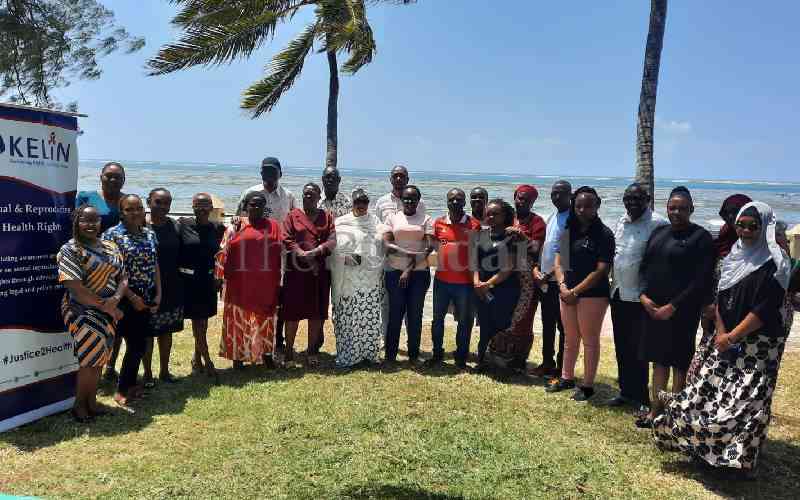×
The Standard e-Paper
Join Thousands Daily

Kilifi County's Gender, Culture, Talent and Sports County Assembly Committee together with the county's gender officials during a sensitization workshop organised by KELIN in Mombasa County. [Marion Kithi, Standard]
It is believed that parents of underage girls have been extorting money and accepting favours from their daughters' lovers leading to an increase in teenage pregnancies.